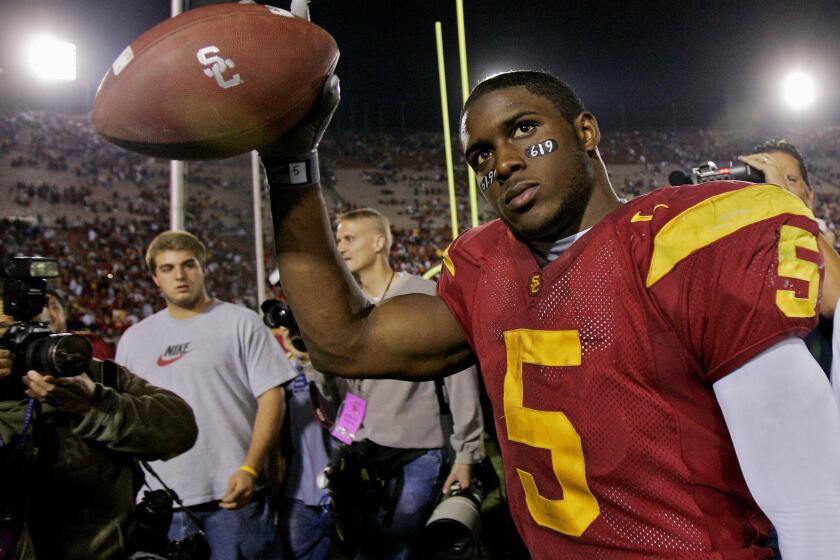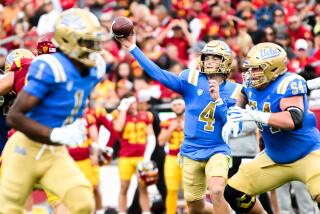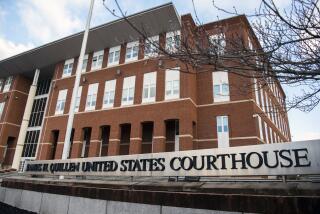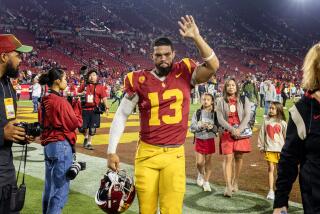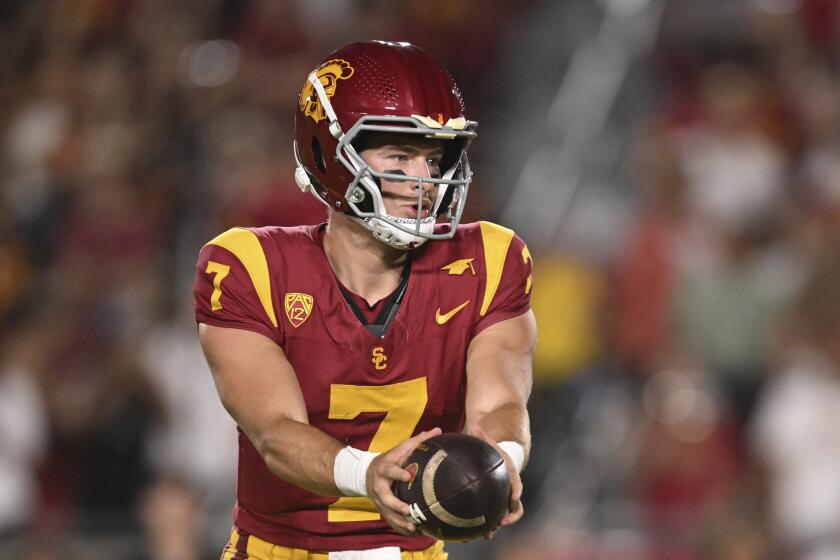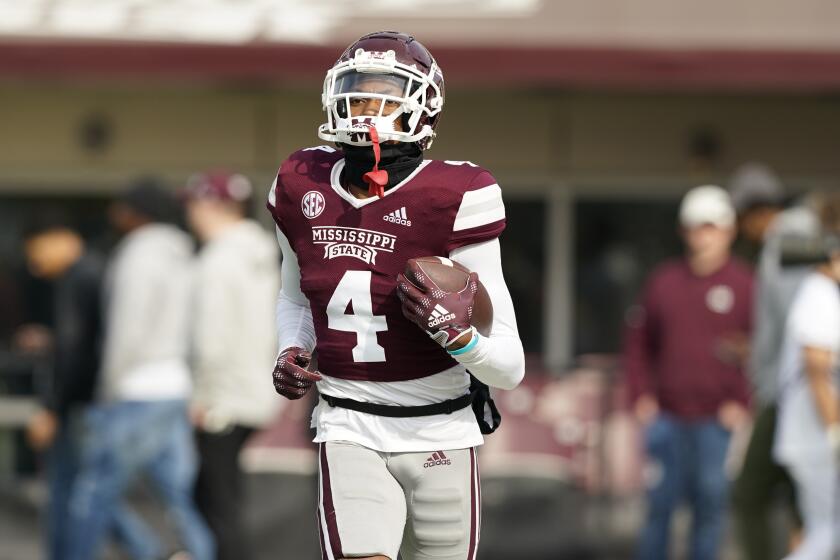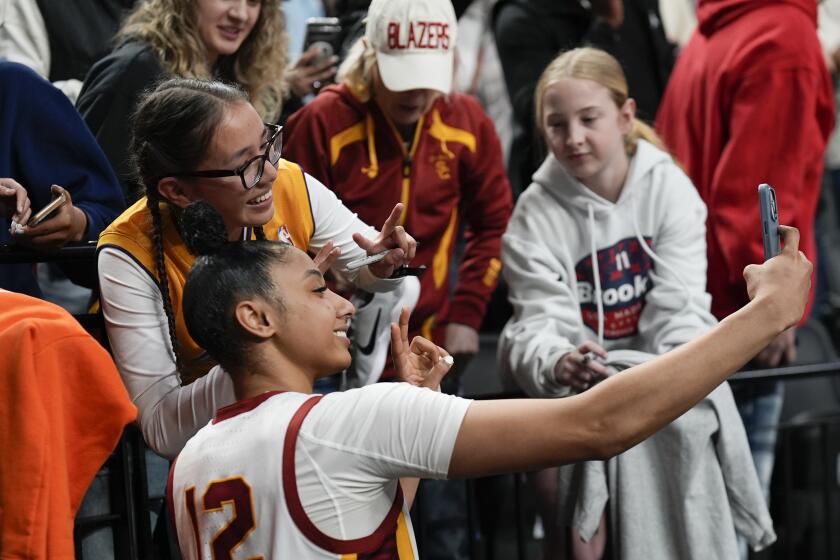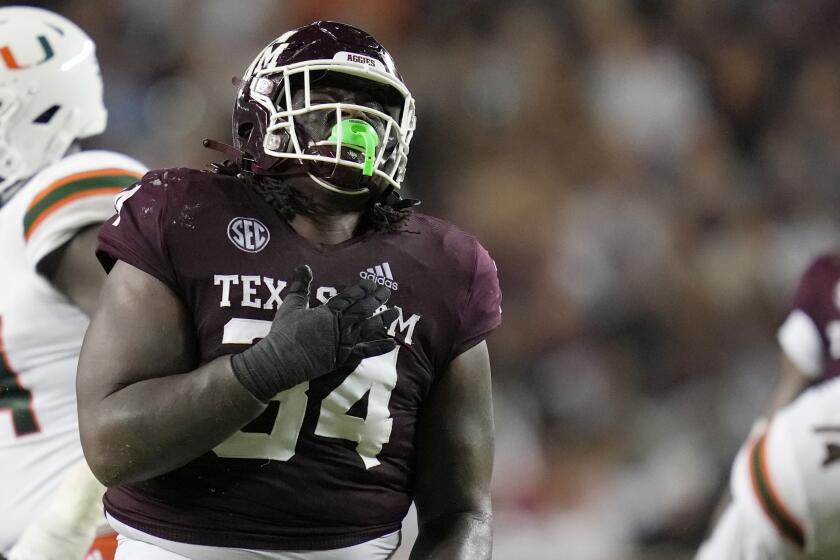NCAA says Reggie Bush won’t get his Heisman Trophy back despite new NIL rules
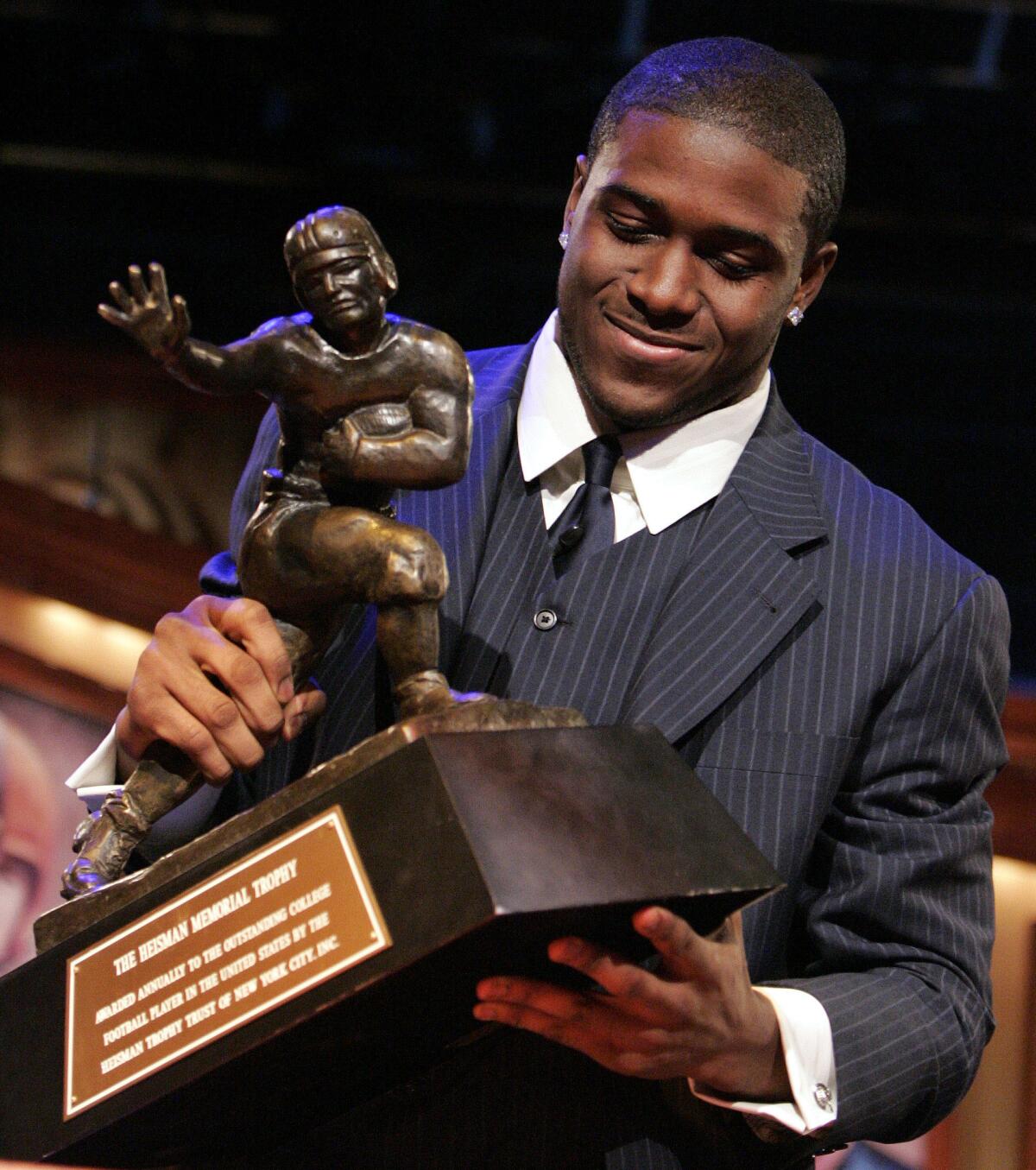
Reggie Bush isn’t likely to see his 2005 Heisman Trophy returned anytime soon.
The NCAA provided the latest stiff-arm in the former USC running back’s effort to reclaim the coveted trophy, declaring Wednesday that it would not reconsider past NCAA penalties, even in the wake of landmark changes to name, image and likeness (NIL) rules across college sports.
“Although college athletes can now receive benefits from their names, images and likenesses through activities like endorsements and appearances, NCAA rules still do not permit pay-for-play type arrangements,” an NCAA spokesperson said. “The NCAA infractions process exists to promote fairness in college sports. The rules that govern fair play are voted on, agreed to and expected to be upheld by all NCAA member schools.”
The NCAA’s denial of Bush came soon after the Heisman Trust opened the door for the trophy’s return. Days after new NIL rules went into effect, and amid public pressure from Bush, the organization in charge of college football’s most prestigious award said it would gladly welcome back the Trojan legend, “should the NCAA reinstate Bush’s 2005 status.”
“Bush’s 2005 season records remain vacated by the NCAA and, as a result, under the rule set forth by the Heisman Trust and stated on the Heisman Ballot, he is not eligible to be awarded the 2005 Heisman Memorial Trophy,” the trust’s statement read.
Any hope of that eligibility being altered by the NCAA likely dissolved Wednesday. However, the Heisman Trust, which administers the trophy, could still decide to reverse course and return it in spite of NCAA rules deeming Bush ineligible.
Bush, at least, seemed to retain some hope.
“Stay tuned,” Bush wrote on Twitter, shortly after the NCAA decision was announced.
On a day when college athletes were permitted to seek financial gain, former USC running back Reggie Bush reminded us what the NCAA unnecessarily took away.
Bush did not immediately respond to messages from The Times. His attorney, Alex Spiro, issued a statement critical of the NCAA that quoted from Supreme Court Justice Brett Kavanaugh’s scathing opinion in the recent NCAA v. Alston case.
“Today, in the face of those words, the NCAA doubles down on its decade-plus draconian penalty of a teenage kid who had his award taken based upon a sham investigation,” Spiro said in a statement. “You have to wonder if profiting from kids for this long has clouded the NCAA’s judgment as to why we have student athletics in the first place.”
Earlier this month, just as the floodgates opened on NIL, Bush issued a statement calling for his NCAA records to be reinstated and his trophy returned.
“It is my strong belief that I won the Heisman trophy ‘solely’ due to my hard work and dedication on the football field and it is also my firm belief that my records should be reinstated,” Bush said in a statement.
Bush returned his Heisman Trophy following a four-year NCAA investigation that found Bush to be retroactively ineligible for his trophy-winning 2005 season because he and his family accepted impermissible benefits that included cash, travel expenses and a rent-free San Diego-area home.
In June 2010, the NCAA issued harsh sanctions to USC, which was forced to vacate the 2004 national title, relinquish 30 scholarships and permanently disassociate from Bush, whose presence was erased from USC and the NCAA record books.
That disassociation ban was finally lifted in June 2020 after 10 years. Earlier this week, the last vestige of the landmark infractions case was decided out of court, as former USC running backs coach Todd McNair settled a defamation suit he had filed against the NCAA for an undisclosed sum, more than a decade after he was handed a show-cause penalty by the NCAA.
Just two days after that settlement was announced, the NCAA decided it would continue to take a hard line with Bush.
More to Read
Go beyond the scoreboard
Get the latest on L.A.'s teams in the daily Sports Report newsletter.
You may occasionally receive promotional content from the Los Angeles Times.

